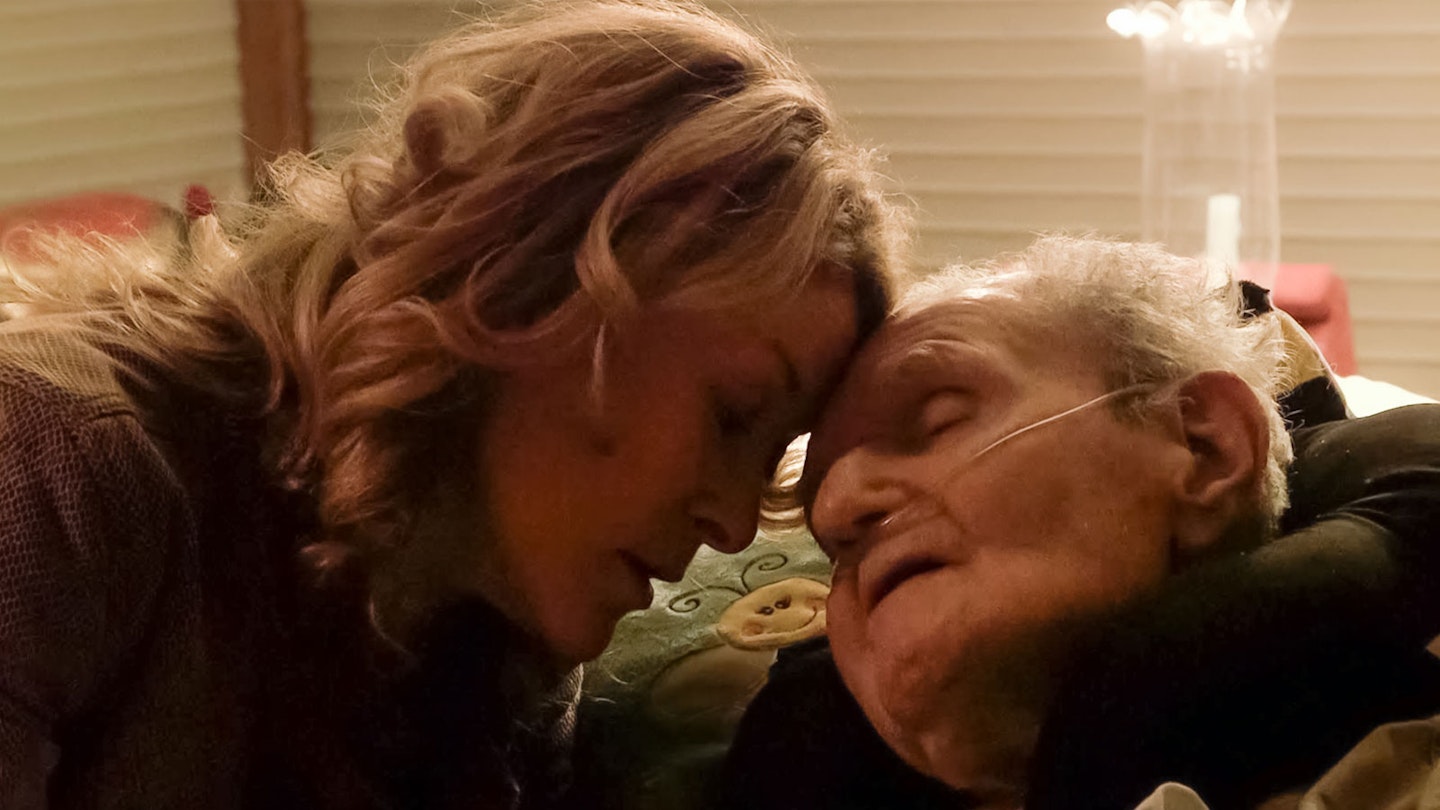Last Flight Home starts at the end, before going back to the beginning. The first things we hear are a conversation between a father and his daughter: the adult child patiently listening, the father’s voice frail yet determined. “We’re going to end it today?” he pleads. It’s striking how blunt he is. This is Eli Timoner, and when we meet him, he is feeble and bed-bound, his quality of life plummeting after multiple health issues, including congenital heart failure.
Filmmaker Ondi Timoner (director of the award-winning music documentary Dig!) introduces her father to us at his lowest ebb, before contrasting with a portrait of how dynamic and successful he was in his earlier years: Eli was once a smooth-talking, high-flying entrepreneur who pioneered low-cost airlines and hobnobbed with politicians and celebrities.

A massage injury led to a stroke, disability, and a slow decline, and it’s at the very end of his life that we get to know Eli, exhausted by the burden of living. He chooses to make use of California’s End of Life Option Act, which legally allows for medical aid in dying, with doctor’s approval. It is not, as one carer carefully observes, ‘assisted suicide’, but simply the right to terminate your life — to end things in a humane and dignified manner, on your own terms.
It’s rare to see such an outpouring of uncomplicated, unequivocal love expressed on screen as it is here.
There is a more political film to be made about the issue, but Ondi Timoner lets her extraordinary home-movie-esque footage do most of the talking, ensuring an array of cameras are there to document every step of the process across the final 14 days of Eli’s life, a ticking clock giving us the countdown in intertitles. There’s something remarkable about the humbling mundanities of this process, as a small army of nurses and carers tend to Eli’s every need, from spoon-feeding to shaving to sponge-bathing, while his wife, children and grandchildren dot about, ensuring he is comfortable and loved. It is a deeply intimate portrait of a person at their most vulnerable.
Eli, for his part, looks tired and depressed, drowsy from medication and impatient to finish things off — “I know I am a burden,” he says at one point — but stills retains embers of humour and spark. He is constantly making plans, rants about the politics of the time, and openly calls for Donald Trump’s balls to be stuffed down his throat. He gets visibly emotional, too, when a parade of family members and well-wishers say their goodbyes, in person and on Zoom. It’s a curiously well-organised death; few of us get to choose how we go, but Eli makes a good case for conscientious planning.

It’s rare to see such an outpouring of uncomplicated, unequivocal love expressed on screen as it is here. There is something about the finality of death, and the certainty of a fixed date, that seems to focus the mind and sharpen the intention. It inevitably makes for an incredibly powerful and moving experience — never more so than in the unbearably tense final scenes, where Eli must drink a deadly formula, something he struggles to do in his frailty. The moment of passing, and the silence that follows, is stunning. Thanks to Ondi Timoner’s intimate filmmaking, we feel like we’re there. What a privilege to be allowed in the room.
